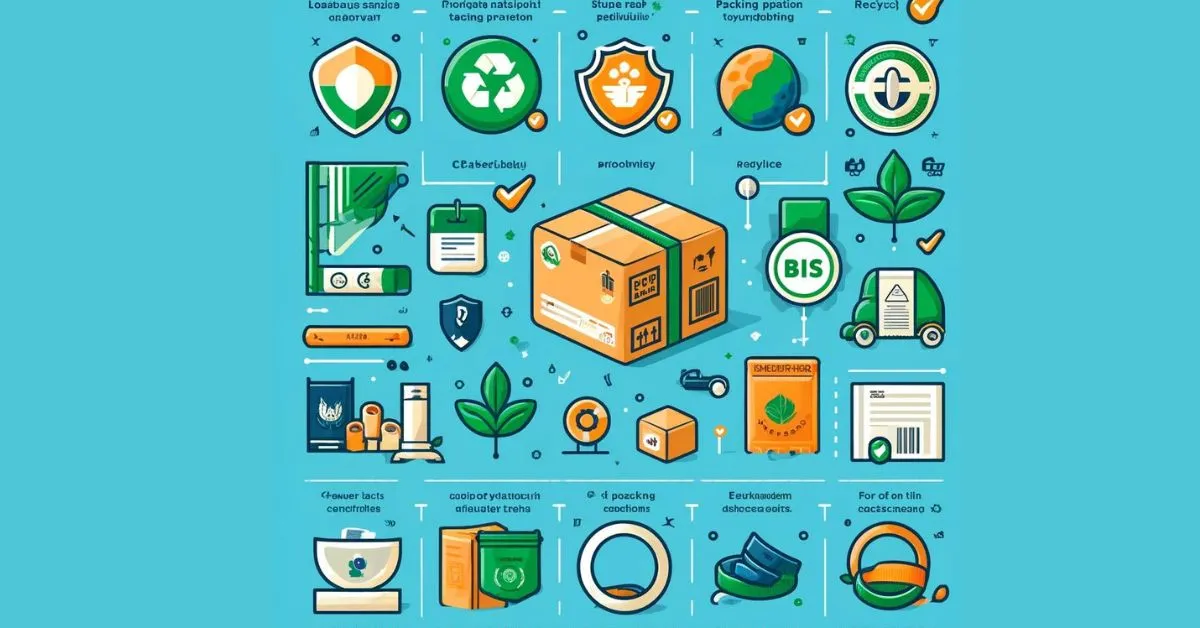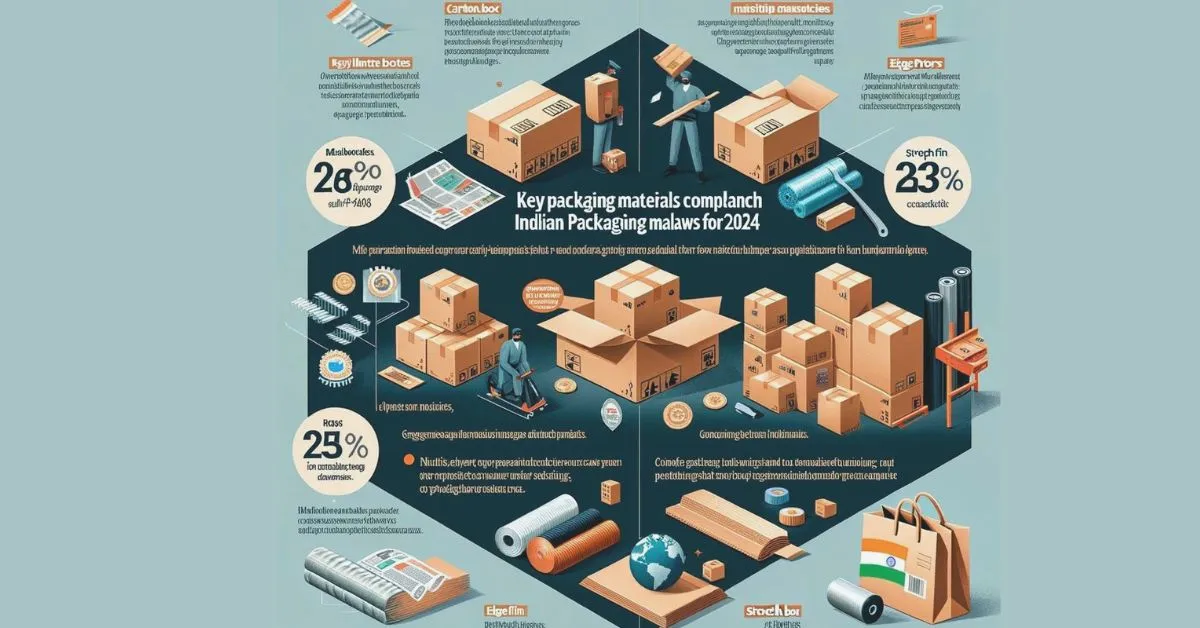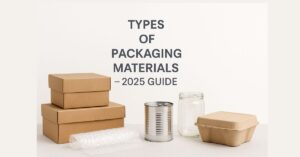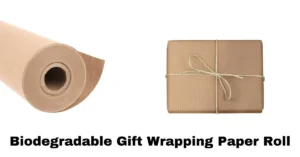Comprehensive Guide to Packaging Laws and Regulations in India for 2024
Navigating the complex landscape of packaging laws and regulations in India is crucial for any business aiming to ship products safely and legally. This article delves into the key packaging regulations and guidelines set forth by Indian authorities, focusing on ensuring that businesses stay compliant while protecting consumer interests.
Overview of Indian Packaging Laws and Regulations

Learn how packaging laws and regulations enforce strict safety standards to ensure all materials are safe for consumers and eco-friendly. Discover requirements for non-toxic materials, accurate labeling, and proper disposal instructions.
1. Central Pollution Control Board (CPCB) Guidelines
The CPCB has established guidelines for plastic waste management, impacting businesses using plastic packaging materials such as courier bags and bubble wrap. Adhering to these regulations ensures legal compliance and promotes environmental sustainability.
2. Bureau of Indian Standards (BIS)
The BIS sets specific standards for various packaging materials. For instance, packing tapes must meet BIS standards to ensure they provide the necessary strength and adhesiveness to seal packages securely.
Key Packaging Materials and Compliance

1. Carton and Mailer Boxes
Suitable for small to medium-sized enterprises across various sectors, these boxes adhere to all necessary regulatory standards, ensuring safe and legal shipping.
2. Stretch Film
Certified food-safe stretch films are essential for the growing e-commerce sector in FMCG. This compliance ensures that food products are packaged safely and legally.
3. Edge Protectors
These are crucial for shipping heavier or fragile items. They are designed to meet customer requirements and transport conditions, providing optimal protection against damage.
4. Eco-friendly Carry Bags
Made from recycled materials, these carry bags comply with government initiatives for sustainable practices, reducing environmental impact while maintaining efficiency in product handling.
More Blog:
- The Ultimate Guide to Corrugated Boxes: Types, Uses, and Benefits
- Bold Black Amazone Tape: Enhance Your Packaging with Style and Strength
New Packaging Laws and Regulations Effective April 2023
The Indian government introduced new Packaging Laws and Regulations effective April 23, 2023. These regulations require comprehensive information on the packaging of 19 different products, including milk, tea, biscuits, and more.
Key Requirements
1. Net Quantity Declaration
If the packaged product weighs less than the recommended amount, the price per gram or milliliter must be noted.
2. Country of Origin
Companies must disclose the country where the product is manufactured.
3. Date of Manufacture:
The manufacturing date of the items must be clearly stated.
Food Safety and Standards Authority of India (FSSAI) Regulations
The FSSAI is establishing Front-of-Pack Nutrition Labeling (FOPL) regulations for packaged food products, including a proposed star rating system to indicate food quality. This initiative aims to enhance transparency and help consumers make informed choices.
Importance of Accurate Packaging Information
Accurate packaging information is essential for compliance and consumer trust. Misleading or incomplete information can lead to consumer deception and legal repercussions. The new regulations aim to protect consumers from fraudulent schemes and ensure they have access to truthful information about the products they purchase.
The Growing Packaging Market in India
The Indian packaging market is expanding rapidly, projected to grow from $50.5 billion in 2019 to $204.81 billion by 2025. This growth is driven by the increasing demand for packaged food and the need for extended shelf life and improved packaging reliability.
Conclusion
Understanding and adhering to packaging laws and regulations in India is crucial for businesses looking to operate legally and sustainably. Gurez offers a comprehensive range of regulation-compliant packing supplies tailored to the needs of contemporary Indian businesses.
By staying compliant, businesses not only avoid potential penalties but also build trust with their consumers.
For detailed guidelines and updates on packaging regulations, visit the FSSAI website.
FAQ: Packaging Laws and Regulations in India
Q: What are the packaging laws and regulations that businesses need to comply with in India?
A: Businesses must adhere to the Packaging and Labelling Regulations, 2011, which outline guidelines for proper labeling and packaging of products.
Q: Is it mandatory to have specific information on product packaging labels in India?
A: Yes, product labels should include details such as manufacturing date, expiry date, MRP (Maximum Retail Price), ingredients (if applicable), and customer care information.
Q: Are there any restrictions on using specific materials for packaging in India?
A: Certain materials like single-use plastics are banned or restricted in some states. It’s essential to be aware of state-specific laws regarding environmentally harmful materials.
Q: Do I need special licenses or certifications for importing/exporting packaged goods within India?
A: Depending on the nature of your business operations, you may require FSSAI licenses or BIS certifications.
Q: How can I ensure my packaging is sustainable and eco-friendly according to Indian standards?
A: Opt for recyclable or biodegradable packing options and consider sustainability during production processes.
Q: Can you provide guidance on suitable packaging solutions?
A: We offer a wide range of eco-friendly packing solutions that meet most regulatory requirements.
Q: Are protective measures necessary when shipping fragile items domestically between cities?
A: Yes, using bubble wrap and foam cushions will prevent damage during transit.
Q: What considerations should I make before choosing carton boxes over mailer bags?
A: Boxes provide better protection against impact, while bags save space and weight, reducing transportation costs. Choose based on your specific needs.
Q: Do you offer customized printing options for packaging materials?
A: Yes, we offer customized printing solutions to enhance brand visibility on your packaging materials.



